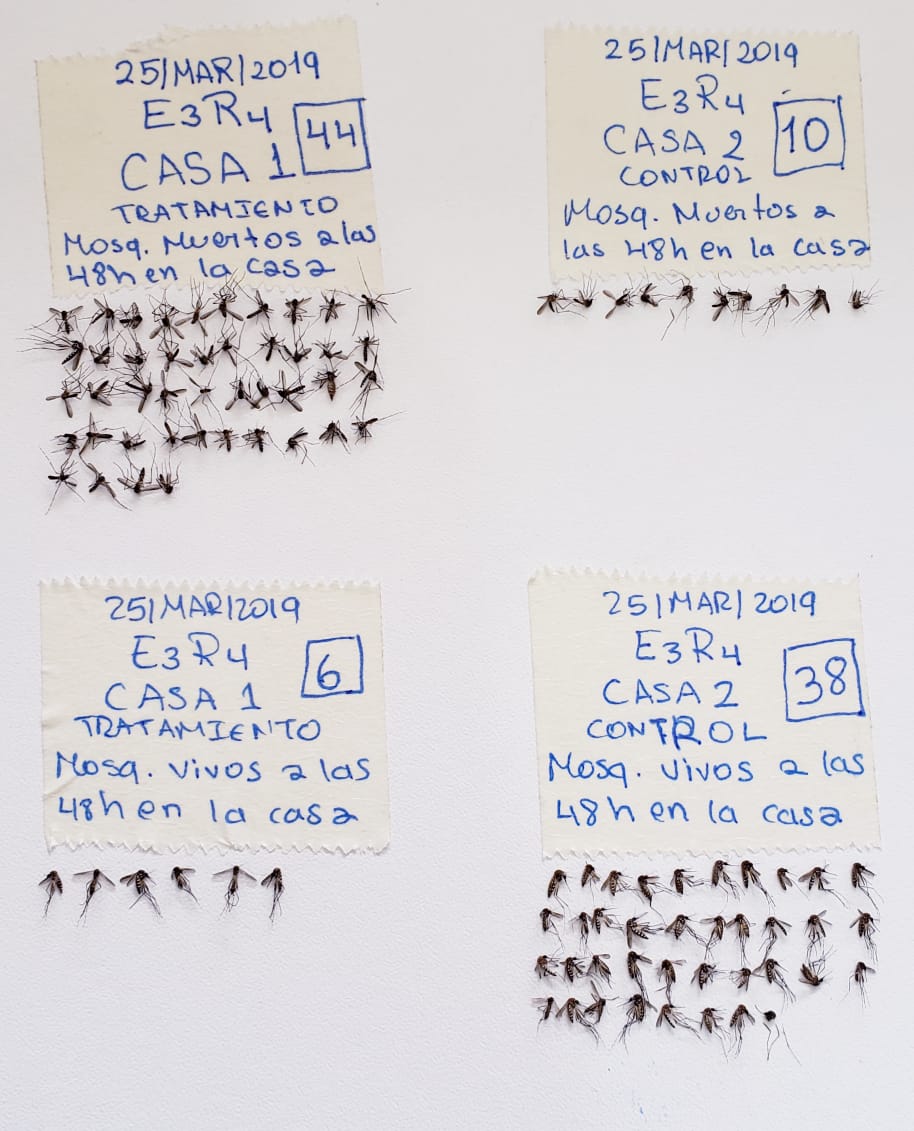Research projects
Community-led responses for malaria elimination
Every malaria infection came from another person. Although transmitted by mosquitos, the mosquitos infected with malaria got their malaria from somebody. When an incident malaria case presents to a health center or community health worker, that incident malaria case represents malaria transmission occurring somewhere and perhaps asymptomatic malaria infections in the village. We are running a community-randomized controlled trial of different strategies to target these reservoirs of malaria parasites in human using incident malaria cases as sentinels. Our team is analyzing the impact of treating everyone in the village as opposed to screening everyone and treating those positives. We will also look at reinfection rates and factors that might affect the reimportation of malaria to villages where everyone has recently been treated.
Improving indoor residual spray for malaria control
Spraying the inside of walls with a residual insecticide kills malaria-transmitting mosquitos that rest on those walls following their blood meal. Because this intervention kills mosquitos after they've taken blood, having your house sprayed does not necessarily protect you but rather protects your neighbors. Having most of the houses sprayed in a neighborhood protects everyone, but without address systems throughout sub-Saharan Africa achieving high coverage is challenging. Our team works on solutions to improve indoor residual spray implementation by using satellite imagery, digital elevation models and predictive risk mapping to guide control programs to identify and target areas needing indoor residual spraying the most.
Controlling the aedes aegypti
The Aedes aegypti is the principle vector for dengue fever, chikungunya, zika and yellow fever. Evolving to live primarily feed on humans and live within human housing these mosquitos are notoriously difficult to control. Our team is developing novel interventions to control the Ae. aegypti and decrease the transmission of these illnesses.
Insecticide-treated mosquito nets and fisheries
Millions of insecticide-treated mosquito nets have been distributed throughout sub-Saharan Africa to combat malaria. These nets protect those that sleep under them and mosquitos capable of transmitting mosquitos. However, these nets are also misused as fishing nets on what appears to be a large scale with devastating environmental consequences. We are conducting research to better understand what implications the misuse of mosquito nets for fishing might have on human and ecosystem health. We are also developing interventions to stop this destructive practice.
Highlighting the impact that open defecation has on human health
An estimated one billion people have no access to a toilet or latrine and defecate in the open. Open defecation facilitates the transmission of various fecal-oral pathogens including soil-transmitted helminths or parasitic intestinal worms. This neglected health burden is borne by the poorest of the poor without access to a latrine or toilet. Our team is working to highlight the health issues associated with open defecation, both for those without access to a latrine or toilet and for their neighbors.

